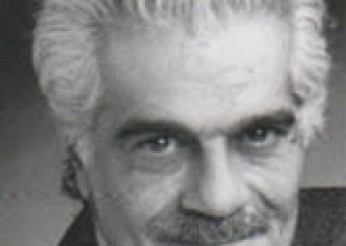Schell starred in only one Yugoslav film, in the role of Đuro Šarac, the man who trained members of Young Bosnia in Assassination in Sarajevo by Veljko Bulajić
Maximilian Schell has often been compared to Emil Jannings: the immortal protagonist of The Blue Angel is the first German actor to win an Oscar, back in 1929, for The Last Command and The Way of all flesh, and Schell was the first to win the award after World War II, in 1962 for his excellent role of defence attorney of war criminals in Judgement at Nuremberg.
Unlike Jannings, he was fiercely against the Nazi regime, and he wasn't a German citizen, considering he lived between Austria and Switzerland: as soon as Anschluss was proclaimed in 1938, his parents left Vienna and moved to Zürich.
As a young man he was briefly undecided as to what career to pursue, he even played football for a while, enrolled at Bern Conservatory, avoiding acting because it was his mother's profession, while his older sister Maria was already and accomplished actress in the early 1950s. However, once he made a decision, he instantly became one of most wanted young German actors: renowned Helmut Käutner - who made Maria Schell famous in The Last Bridge in 1954 - two years later he gave him the leading role in the celebrated The Girl from Flanders, in 1958 he played alongside Marlon Brando in The Young Lions (apparently it was a mistake, they were trying to reach his sister through him, but once they saw him, he got the role of the disillusioned German officer in an expensive adaptation of the Irwin Shaw novel). The role that brought him the Oscar he first played at American television live, and since he left a fantastic impression, his name could later be would together with Spencer Tracy, Marlene Dietrich, Judy Garland and Burt Lancaster.
He simultaneously worked on his a theatre career: legendary Gustav Gründgens invited him to Hamburg, where he played for four years whenever he could, and as their farewell (Gründgens retired in 1963) he played Hamlet, considered one of the best interpretations on theatre stages across Europe. Leonard Bernstein complimented his piano playing, he translated John Osborne and Shakespeare into German, later he took over the role of Jedermann from Curd Jürgens at Salzburg Festival, but from the 1970s he got more involved in directing. He was still offered good roles - resulting in two more Oscar nominations, for The Man in the Glass Booth (1975) and Julia (1977) - however, he could often be heard saying he preferred standing behind the camera.
His first two films, a lyrical First Love (1970) based on Turgenev and The Pedestrian (1973), an intriguing analysis of the ghosts of Nazi past in contemporary western society, were both nominated for Oscar, while Tales from the Vienna Woods (1979), based on the famous play by Ödön von Horvát, achieved quite a success. He was also extremely skilled in filming documentaries: he intended to film a portrait of Marlene Dietrich, but while negotiating with the film legend, she decided not to go ahead with the film. However, he recorded their conversation on tape and made an unusual documentary Marlene (1984), also nominated for an Oscar. His most personal film was My Sister Maria (2002), where he dealt with the relationship with his sister, who was severely mentally ill by that time: the premiere was her last public appearance. He was also quite successful in operettas, his Vienna Blood by Johann Strauss in the Austrian Mörbisch was a great success.
In Yugoslav cinema he appeared only once, playing Đuro Šarac, the man who trained members of Young Bosnia in Assassination in Sarajevo by Veljko Bulajić. The media always found him interesting because he socialised with great names in the industry, from Orson Welles and Bernstein to Robert Altman and Jon Voight: he met the latter on the set of The Odessa File, he gave him the lead role in the adaptation of Friedrich Dürrenmatt's The Judge and his Hangman, and was the godfather to his daughter Angelina Jolie.
For three years he had an affair with Soraya, former wife of the Persian Shah Reza Pahlavi, his wife was the famous Russian actress Natalya Andreychenko, and last year - after several years of "dating" - he married Iva Mihanovic, German soprano of Croatian descent, 47 years younger than him. Earlier this year he suffered pneumonia, but then he had to have surgery because of pain in his back and never woke up from the anaesthesia. He died on February 1 during the night at a hospital in Innsbruck, aged 84. (Nenad Polimac, Jutarnji list)
